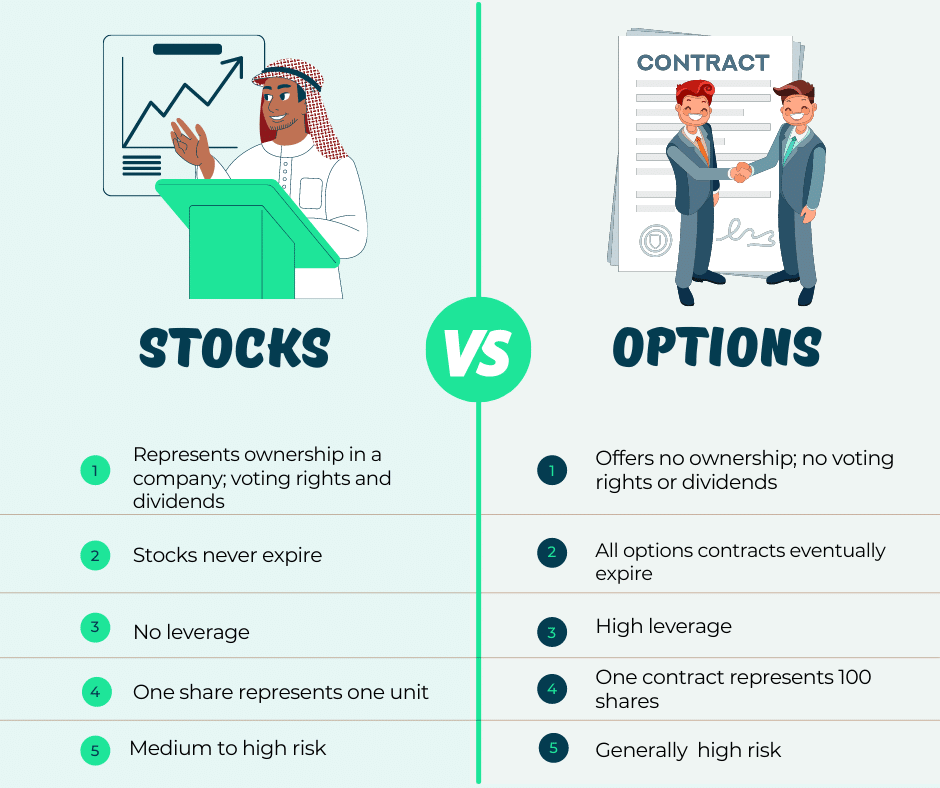Disclaimer
I am not a financial advisor, and the information provided in this article is for informational purposes only. It should not be construed as financial advice. Please consult a qualified financial professional before making any investment decisions.

Image: www.fortunebuilders.com
What are Stock Options?
Stock options are contracts that give the holder the right but not the obligation to buy or sell a certain number of shares of a company’s stock at a specific price (the strike price) on or before a specific date (the expiration date).
Types of Stock Options
There are two types of stock options:
- Call options: Give the holder the right to buy shares at the strike price.
- Put options: Give the holder the right to sell shares at the strike price.
How Stock Options Trading Works
To trade stock options, you need to find a broker who offers options trading. Once you have an account, you can buy or sell options contracts. When you buy an option contract, you are paying a premium to the seller of the contract. This premium is the price you pay for the right to buy or sell the shares at the strike price.
When you sell an option contract, you are receiving the premium from the buyer of the contract. In return, you are agreeing to buy (in the case of a call option) or sell (in the case of a put option) the shares at the strike price if the buyer exercises their right.

Image: binaryoptionsjournal.com
Risks of Stock Options Trading
Stock options trading can be a risky business. The value of an option contract can fluctuate rapidly, and you could lose all or more of the money you invested.
Some of the risks of stock options trading include:
- Time decay: The value of an option contract decays over time as the expiration date approaches. This means that you could lose money even if the underlying stock price moves in your favor.
- Volatility: The value of an option contract can be very volatile, especially in times of high market volatility.
- Leverage: Options contracts provide leverage, which can magnify your profits or losses.
Tips for Stock Options Trading
- Do your research: Before you trade stock options, it is important to do your research and understand the risks involved.
- Start small: When you first start trading options, it is a good idea to start small and trade with a small amount of money.
- Use limit orders: When you place an order to buy or sell an option contract, you can use a limit order to specify the maximum or minimum price you are willing to pay or accept.
- Be patient: Stock options trading can be a long-term game. It is important to be patient and not try to make quick profits.
FAQs about Stock Options Trading
- What is the difference between a call option and a put option?
A call option gives the holder the right to buy shares at the strike price, while a put option gives the holder the right to sell shares at the strike price.
- What is time decay?
Time decay is the decrease in the value of an option contract over time as the expiration date approaches.
- What is volatility?
Volatility is the measure of how much the price of an option contract can fluctuate.
- What is leverage?
Leverage is the ability to use borrowed money to invest. Options contracts provide leverage, which can magnify your profits or losses.
Stock Options Trading For Beginners
https://youtube.com/watch?v=XN9LIm6HhSI
Conclusion
Stock options trading can be a powerful tool for investors who want to increase their potential returns. However, it is important to understand the risks involved and trade responsibly.
Are you interested in learning more about stock options trading?






